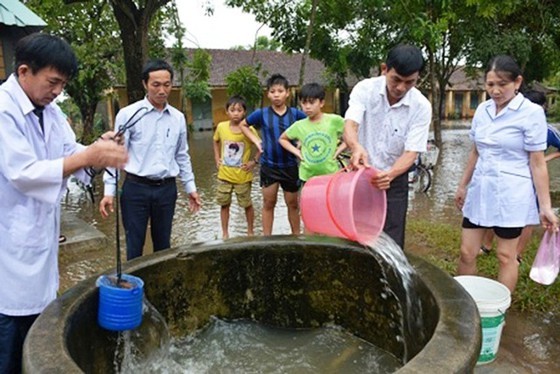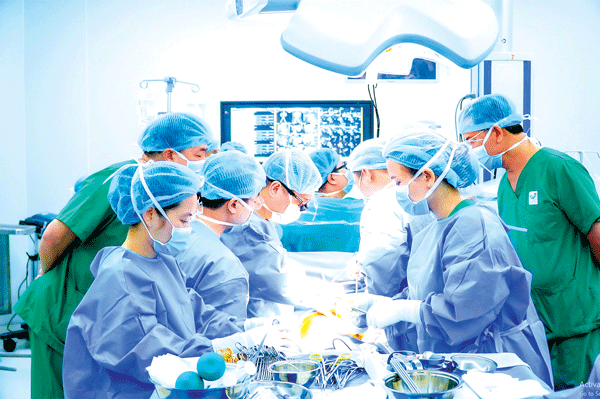According to the Ministry, stagnant pools of flood water serve as ideal breeding grounds for pathogens that result in diarrhea and other waterborne infections including dengue fever, malaria, diarrhea, skin and eye infections.
To prevent above-mentioned diseases, the Ministry advised people to take proactive measures such as drinking boiled water and eating safe food. Moreover, residents in the flood-hit areas should wash their hands with soaps regularly before making food before and after using toilet.
Additionally, they should change water in vases and bowls on alternate days, remove water from flower pot plates on alternate days, turn over all water storage containers when not in use. Last but not least, they should bury animal corpses as per medical workers’ instructions.
 Medical workers are guiding people for safe eating and drinking to prevent disease in the aftermath of floods in the central region of Vietnam (Photo: SGGP)
Medical workers are guiding people for safe eating and drinking to prevent disease in the aftermath of floods in the central region of Vietnam (Photo: SGGP)
Big infirmaries were assigned to provide assistance to their peers in the central region. Specifically, Hanoi-based Bach Mai Hospital must help their peers in the Central Province of Ha Tinh, Vietnam – Cu Ba Hospital in Dong Hoi Town in the Central Province of Quang Binh must help their peers in Quang Binh’s grass-root medical clinics.
For the disease prevention and fighting task, the Ministry assigned the National Institute of Hygiene and Epidemiology to help hospitals in Ha Tinh, Quang Binh and Quang Tri while the National Institute for Occupational and Environmental Health will help Quang Tri and Thua Thien – Hue and Nha Trang Pasteur Institute will help Da Nang and Quang Nam.
Leaders of medical centers were asked to prepare drugs, chemicals and means of transportation for emergency treatment.
























